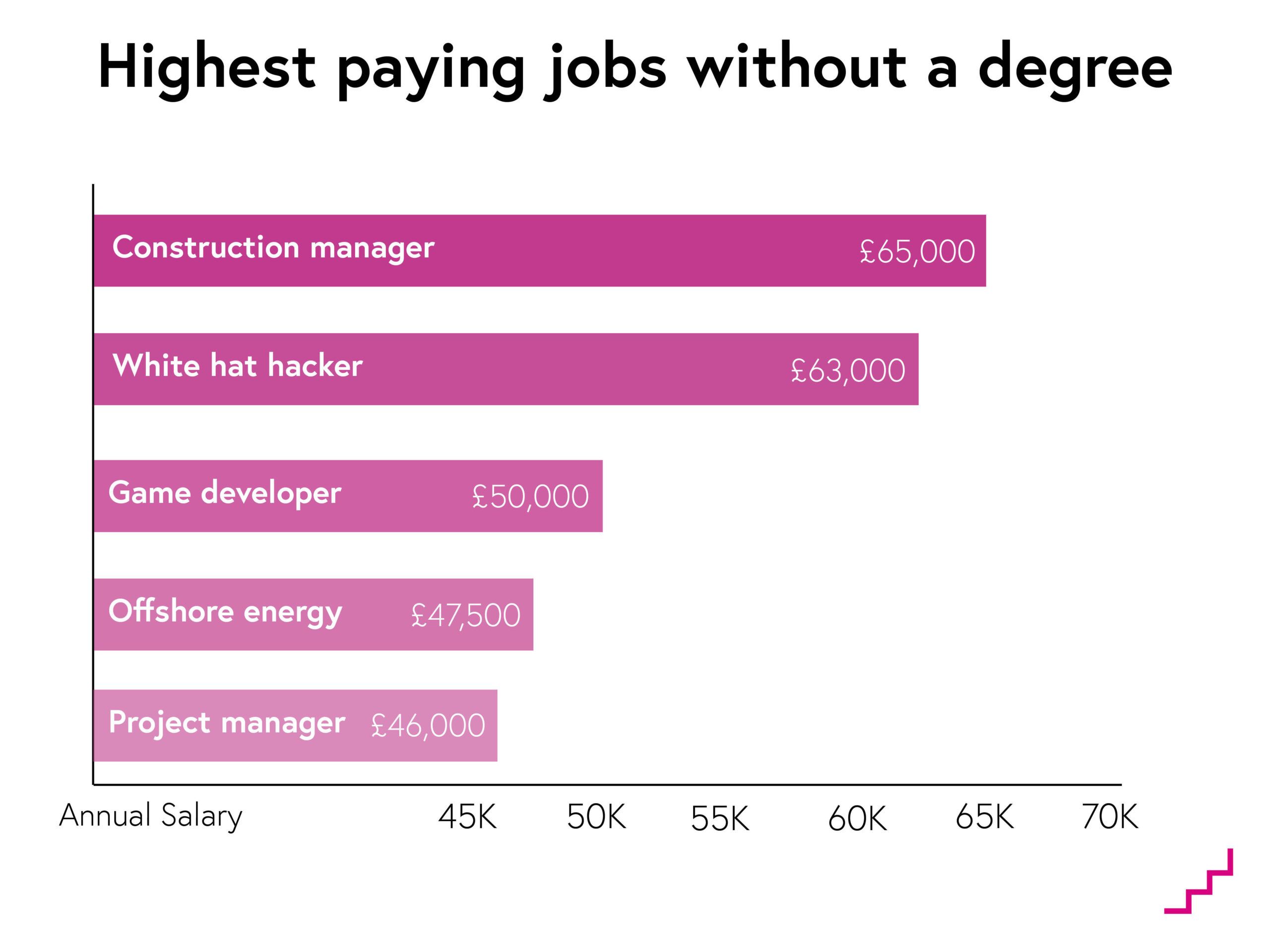What Makes a Job Highly Rewarding?
A highly rewarding job is often characterized by a combination of factors that contribute to its desirability and financial compensation. Industry demand, required skills and education, and growth opportunities are some of the key elements that can impact salary ranges and job satisfaction. Jobs that pay the most often require specialized skills, advanced education, and a strong understanding of industry trends.
For instance, jobs in the tech industry, such as software engineering and data science, are often highly paid due to the high demand for skilled professionals and the constant evolution of technology. Similarly, jobs in the healthcare industry, such as physicians and dentists, require extensive education and training, resulting in higher salaries.
Another important factor that contributes to a job’s reward value is growth opportunities. Jobs that offer opportunities for career advancement, professional development, and increased responsibility are often more desirable and better compensated. For example, management positions in various industries, such as finance and marketing, often come with higher salaries and benefits due to the level of responsibility and expertise required.
Furthermore, jobs that require specialized skills, such as programming languages, data analysis, or digital marketing, can command higher salaries due to the scarcity of skilled professionals. Additionally, jobs that involve working with cutting-edge technologies, such as artificial intelligence, blockchain, or cybersecurity, can offer higher salaries and better benefits due to the high demand for experts in these fields.
Ultimately, a highly rewarding job is one that offers a combination of financial compensation, personal fulfillment, and growth opportunities. By understanding the factors that contribute to a job’s reward value, individuals can make informed decisions about their career choices and strive for jobs that pay the most in their desired field.
How to Identify In-Demand Jobs with High Salary Potential
Identifying in-demand jobs with high salary potential requires a combination of research, analysis, and networking. One effective way to start is by utilizing job market analytics tools, such as the Bureau of Labor Statistics’ Occupational Outlook Handbook or online job boards like LinkedIn or Glassdoor. These resources provide valuable insights into job market trends, salary ranges, and growth opportunities.
Industry reports and research studies can also provide valuable information on emerging job opportunities and salary ranges. For example, a report by the World Economic Forum highlights the growing demand for jobs in the fields of artificial intelligence, data science, and cybersecurity. Similarly, a study by the National Association of Colleges and Employers found that jobs in the fields of engineering, computer science, and business are among the highest-paying for new graduates.
Professional networks can also play a crucial role in identifying in-demand jobs with high salary potential. Attend industry conferences, join professional organizations, and connect with professionals in your desired field to gain insights into job market trends and salary ranges. Utilize online platforms like LinkedIn to connect with professionals and join relevant groups to stay informed about job market developments.
Another effective way to identify in-demand jobs is by analyzing job postings and salary data from reputable sources. Websites like Indeed, Glassdoor, and PayScale provide valuable information on job market trends, salary ranges, and growth opportunities. By analyzing this data, you can gain insights into the most in-demand jobs and the skills and qualifications required to secure them.
Some of the most in-demand jobs that pay the most include software engineers, data scientists, product managers, and investment bankers. These jobs often require specialized skills, advanced education, and a strong understanding of industry trends. By identifying these jobs and developing the required skills and qualifications, you can increase your chances of securing a high-paying job in your desired field.
Ultimately, identifying in-demand jobs with high salary potential requires a combination of research, analysis, and networking. By utilizing job market analytics tools, industry reports, professional networks, and online resources, you can gain valuable insights into job market trends and salary ranges. By developing the required skills and qualifications, you can increase your chances of securing a high-paying job and achieving your career goals.
Top High-Paying Jobs Across Various Industries
Across various industries, there are numerous high-paying jobs that offer attractive salary ranges and benefits. Here are some of the top high-paying jobs in tech, finance, healthcare, and energy:
In the tech industry, some of the highest-paying jobs include:
- Software Engineer: $124,000 – $200,000 per year (average salary range)
- Data Scientist: $118,000 – $170,000 per year (average salary range)
- Product Manager: $115,000 – $160,000 per year (average salary range)
Companies like Google, Amazon, and Microsoft are among the top tech companies that offer these high-paying jobs.
In the finance industry, some of the highest-paying jobs include:
- Investment Banker: $100,000 – $200,000 per year (average salary range)
- Financial Manager: $90,000 – $160,000 per year (average salary range)
- Portfolio Manager: $80,000 – $150,000 per year (average salary range)
Companies like Goldman Sachs, JPMorgan Chase, and Morgan Stanley are among the top finance companies that offer these high-paying jobs.
In the healthcare industry, some of the highest-paying jobs include:
- Physician: $200,000 – $400,000 per year (average salary range)
- Dentist: $150,000 – $300,000 per year (average salary range)
- Pharmacist: $120,000 – $200,000 per year (average salary range)
Companies like Mayo Clinic, Cleveland Clinic, and Kaiser Permanente are among the top healthcare companies that offer these high-paying jobs.
In the energy industry, some of the highest-paying jobs include:
- Petroleum Engineer: $130,000 – $250,000 per year (average salary range)
- Energy Trader: $100,000 – $200,000 per year (average salary range)
- Renewable Energy Engineer: $90,000 – $180,000 per year (average salary range)
Companies like ExxonMobil, Chevron, and ConocoPhillips are among the top energy companies that offer these high-paying jobs.
These high-paying jobs often require specialized skills, advanced education, and a strong understanding of industry trends. By developing the required skills and qualifications, individuals can increase their chances of securing a high-paying job in their desired field.
The Role of Education and Skills in Securing High-Paying Jobs
Education and skills play a crucial role in securing high-paying jobs. Certain degrees, certifications, and skills can significantly impact salary potential and career advancement opportunities. In today’s competitive job market, having the right education and skills can make all the difference in landing a high-paying job.
For instance, jobs in the tech industry, such as software engineering and data science, require advanced degrees in computer science, mathematics, or engineering. Similarly, jobs in the finance industry, such as investment banking and financial management, require degrees in finance, accounting, or business administration.
Certifications and licenses can also significantly impact salary potential. For example, certifications like Chartered Financial Analyst (CFA) or Certified Public Accountant (CPA) can increase salary potential by 10-20%. Similarly, licenses like medical licenses or law licenses can increase salary potential by 20-50%.
In addition to formal education and certifications, skills like programming languages, data analysis, and digital marketing can also significantly impact salary potential. For example, skills like Python programming, data science, and digital marketing can increase salary potential by 10-30%.
Moreover, having a strong understanding of industry trends and developments can also increase salary potential. For example, knowledge of emerging technologies like artificial intelligence, blockchain, or cybersecurity can increase salary potential by 10-20%.
Some of the highest-paying jobs that require advanced education and skills include:
- Physician: $200,000 – $400,000 per year (average salary range)
- Dentist: $150,000 – $300,000 per year (average salary range)
- Lawyer: $120,000 – $250,000 per year (average salary range)
- Investment Banker: $100,000 – $200,000 per year (average salary range)
These high-paying jobs often require a combination of formal education, certifications, and skills. By investing in education and skills, individuals can increase their chances of securing a high-paying job and achieving their career goals.
How to Develop the Skills Required for High-Paying Jobs
Developing the skills required for high-paying jobs is crucial in today’s competitive job market. With the rise of automation and artificial intelligence, it’s essential to stay ahead of the curve and continuously update your skills to remain relevant. Here are some ways to develop the skills required for high-paying jobs:
Online Courses: Online courses are an excellent way to develop new skills and enhance existing ones. Platforms like Coursera, Udemy, and edX offer a wide range of courses on various subjects, including programming, data science, and digital marketing.
Professional Certifications: Professional certifications can significantly boost your career prospects and salary potential. Certifications like AWS Certified Developer, Google Cloud Certified – Professional Cloud Developer, and Certified Data Scientist can increase your earning potential by 10-20%.
Networking: Networking is a powerful way to develop skills and learn from industry experts. Attend conferences, join professional organizations, and connect with professionals in your desired field to gain insights and learn from their experiences.
Bootcamps: Bootcamps are intensive training programs that teach you specific skills in a short period. Bootcamps like General Assembly, App Academy, and Hack Reactor offer training in programming, data science, and other in-demand skills.
Mentorship: Finding a mentor can be incredibly beneficial in developing skills and advancing your career. A mentor can provide guidance, support, and valuable insights into the industry, helping you navigate the job market and make informed decisions.
Continuous Learning: Continuous learning is essential in today’s fast-paced job market. Stay up-to-date with industry trends, read books and articles, and participate in online forums to stay ahead of the curve.
Some of the most in-demand skills for high-paying jobs include:
- Programming languages like Python, Java, and JavaScript
- Data science and machine learning
- Digital marketing and e-commerce
- Cybersecurity and cloud computing
- Artificial intelligence and robotics
By developing these skills and continuously updating your knowledge, you can increase your chances of securing a high-paying job and advancing your career.
Industry Trends and Emerging High-Paying Job Opportunities
The job market is constantly evolving, with new technologies, shifting workforce demographics, and changing consumer behaviors creating new opportunities for high-paying jobs. Here are some current industry trends and emerging job opportunities that offer high salaries:
Artificial Intelligence and Machine Learning: As AI and machine learning continue to transform industries, the demand for experts in these fields is skyrocketing. Jobs like AI engineer, machine learning engineer, and data scientist are in high demand, with average salaries ranging from $100,000 to $200,000 per year.
Cybersecurity: With the rise of cyber threats, companies are looking for experts who can protect their networks and systems. Jobs like cybersecurity engineer, penetration tester, and chief information security officer are in high demand, with average salaries ranging from $80,000 to $200,000 per year.
Healthcare Technology: The healthcare industry is undergoing a significant transformation, with the adoption of new technologies like electronic health records, telemedicine, and personalized medicine. Jobs like healthcare IT project manager, clinical data analyst, and medical informatics specialist are in high demand, with average salaries ranging from $60,000 to $150,000 per year.
Renewable Energy: As concern for the environment grows, the demand for renewable energy sources is increasing. Jobs like solar engineer, wind turbine technician, and energy efficiency specialist are in high demand, with average salaries ranging from $50,000 to $120,000 per year.
Autonomous Vehicles: With the rise of autonomous vehicles, companies are looking for experts who can design and develop self-driving cars. Jobs like autonomous vehicle engineer, computer vision engineer, and machine learning engineer are in high demand, with average salaries ranging from $80,000 to $200,000 per year.
Some of the top companies hiring for these high-paying jobs include:
- Amazon
- Microsoft
- IBM
- General Electric
These companies are at the forefront of innovation, and they’re looking for talented individuals who can help them stay ahead of the curve. By staying up-to-date with industry trends and developing the skills required for these high-paying jobs, you can increase your chances of securing a lucrative career.
Creating a Career Roadmap to Achieve High-Paying Job Goals
Creating a career roadmap is essential to achieving high-paying job goals. A career roadmap is a strategic plan that outlines your career objectives, identifies key milestones, and provides a roadmap for achieving success. Here are some steps to create a career roadmap:
Step 1: Define Your Career Objectives
Start by defining your career objectives. What are your short-term and long-term career goals? What kind of job do you want to have? What industry do you want to work in? Be specific and make sure your objectives are measurable, achievable, relevant, and time-bound (SMART).
Step 2: Identify Key Milestones
Identify the key milestones that you need to achieve to reach your career objectives. What skills do you need to develop? What experience do you need to gain? What education or training do you need to pursue? Make a list of the key milestones that you need to achieve.
Step 3: Develop a Strategic Plan
Develop a strategic plan that outlines the steps you need to take to achieve your career objectives. What actions do you need to take? What resources do you need to access? What support do you need to seek? Make a plan that is realistic, achievable, and aligned with your career objectives.
Step 4: Create a Timeline
Create a timeline that outlines the key milestones and deadlines for achieving your career objectives. What are the key dates and deadlines that you need to meet? What are the key milestones that you need to achieve? Make a timeline that is realistic and achievable.
Step 5: Review and Revise
Review and revise your career roadmap regularly. What progress have you made? What challenges have you faced? What changes do you need to make? Make adjustments to your career roadmap as needed to ensure that you are on track to achieving your career objectives.
Some of the top companies that offer career development opportunities include:
- Amazon
- Microsoft
- IBM
- General Electric
These companies offer a range of career development opportunities, including training programs, mentorship, and career advancement opportunities. By creating a career roadmap and pursuing career development opportunities, you can increase your chances of achieving high-paying job goals.
Overcoming Common Challenges in Pursuing High-Paying Jobs
Pursuing high-paying jobs can be challenging, and individuals may face various obstacles along the way. Here are some common challenges that individuals may face when pursuing high-paying jobs, along with practical advice on how to overcome them:
Limited Experience: One of the most significant challenges that individuals may face when pursuing high-paying jobs is limited experience. To overcome this challenge, focus on building your skills and gaining experience through internships, volunteer work, or part-time jobs.
Intense Competition: High-paying jobs are often highly competitive, and individuals may face intense competition from other qualified candidates. To overcome this challenge, focus on developing a strong personal brand, networking with industry professionals, and creating a standout resume and cover letter.
Self-Doubt: Self-doubt can be a significant obstacle when pursuing high-paying jobs. To overcome this challenge, focus on building your confidence through positive self-talk, seeking feedback from trusted mentors or colleagues, and celebrating your achievements.
Lack of Education or Training: Some high-paying jobs may require specialized education or training. To overcome this challenge, focus on investing in your education and training, whether through formal degree programs or online courses and certifications.
Networking: Networking is a critical component of pursuing high-paying jobs. To overcome this challenge, focus on building relationships with industry professionals, attending networking events, and leveraging social media platforms to connect with potential employers.
Some of the top companies that offer career development opportunities and support for overcoming common challenges include:
- Amazon
- Microsoft
- IBM
- General Electric
These companies offer a range of career development opportunities, including training programs, mentorship, and career advancement opportunities. By leveraging these resources and focusing on building your skills, experience, and personal brand, you can overcome common challenges and achieve your high-paying job goals.







